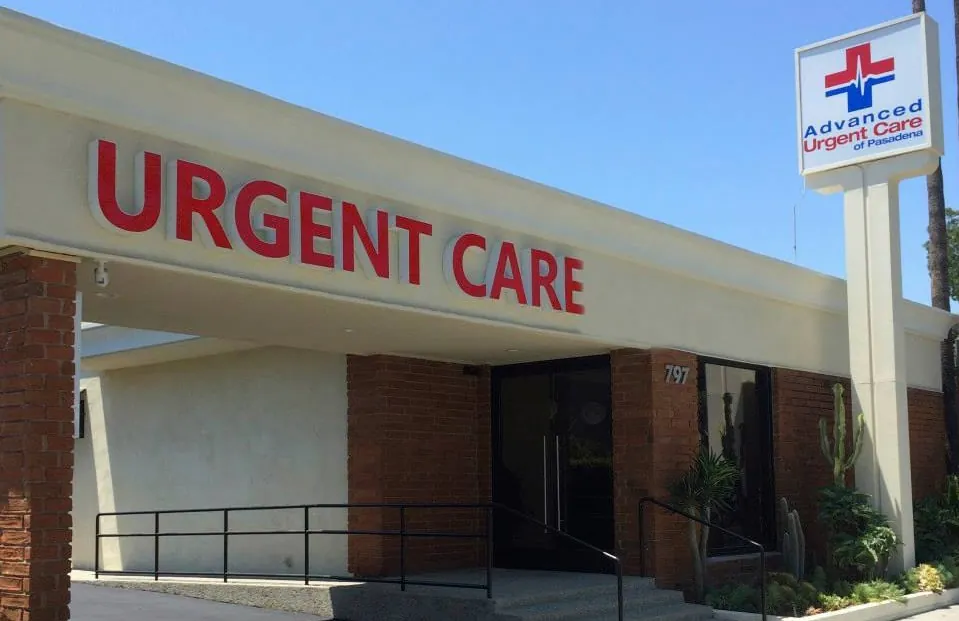Deciding whether a medical problem warrants a visit to the emergency room or an urgent care facility can be challenging. In this blog, we’ll discuss when it’s appropriate to visit an urgent care center and how to determine whether your condition requires an emergency room or urgent care treatment.
Understanding Urgent Care
The purpose of urgent care centers is to treat non-life-threatening illnesses that need to be treated right away but aren’t severe enough to require a visit to the emergency department. These establishments provide easy access to medical care without the lengthy wait times usually found in emergency rooms.
When to Go to Urgent Care

Managing non-life-threatening medical concerns requires knowing when to visit an urgent care center. For illnesses that need immediate care but are not severe enough to require a visit to the emergency department, urgent care centers provide easy access to medical services. Here is a thorough guide explaining when you should consider visiting an urgent care center for service:
Minor Injuries
Urgent care service is a great alternative when addressing minor injuries that need medical treatment but are not life-threatening. These might consist of:
Sprains and Strains:
Urgent care can offer assessment, pain relief, therapy, and rehabilitation suggestions if you have strained a muscle or twisted your ankle while exercising.
Minor Cuts and Burns:
To avoid infection and improve healing, urgent care centers can provide prompt care for minor burns, cuts, and scrapes that require cleaning, dressing, or sutures.
Common Illnesses
Urgent care facilities can treat many common ailments. These might consist of:
Flu-like Symptoms:
An assessment, an influenza test, and symptomatic treatment can all be obtained in an urgent care facility if you suffer from a high temperature, cough, sore throat, body aches, etc.
Cold and Sinus Infections:
Doctors specializing in urgent care can evaluate symptoms such as headaches, sore throats, sinus pressure, and nasal congestion. They can also prescribe decongestants, painkillers, or antibiotics as suitable treatments.
Urinary Tract Infections (UTIs):
Urgent care centers may perform a urinalysis, diagnose UTIs, and prescribe antibiotics for symptoms including burning when urinating, frequent urination, and lower stomach discomfort.
Ear Infections:
Urgent care may evaluate your child or you if they have ear discomfort, ear discharge, or hearing problems. They can also identify any infection and offer the best course of action, which may include medications if needed.
Strep Throat:
Strep throat can cause symptoms including a harrowing throat and trouble swallowing. Urgent care can treat the patient with antibiotics if the fast strep test returns positive.
Diagnostic Services
Urgent care facilities frequently offer on-site diagnostic services to help assess and treat a range of ailments. These offerings might consist of:
X-rays:
To assess potential fractures or locate foreign objects embedded in soft tissues.
Lab Tests:
As blood testing to check for anomalies, electrolyte imbalances, or infections.
Electrocardiograms (EKGs):
To assess heart rhythm and function in individuals who complain of palpitations or chest discomfort.
Do I Need to Go to Urgent Care?
If you’re not sure if you need urgent treatment for your condition, consider the following:
The severity of Symptoms:
Determine how severe your symptoms are. Urgent treatment is the best option if they are not life-threatening or are mild to moderate.
Time of Day:
Urgent care can offer easy access to medical treatment if your regular healthcare practitioner isn’t accessible or it’s after regular business hours.
Accessibility:
Urgent care centers are a desirable alternative to emergency rooms for non-emergency medical needs since they are frequently more accessible and have reduced wait times.
Understanding Emergency Room Care
Emergency rooms are designed to treat serious medical situations that could be fatal and require immediate attention. These facilities have access to cutting-edge medical resources and technology, and their personnel consist of highly qualified medical experts.
When to Seek Medical Emergency Care
Chest Pain or Difficulty Breathing:
Seek emergency attention right away if you’re having signs of a stroke or heart attack, such as breathing difficulties or chest discomfort. These are symptoms of a potentially fatal illness that must be treated immediately.
Severe Injuries:
Major trauma, deep cuts, fractured bones, and brain traumas are among the conditions that emergency departments are prepared to treat. See the emergency department for assessment and care if you have had a significant injury or accident.
Sudden Loss of Consciousness:
Seizures or concussions are two significant medical conditions that may be indicated if you suddenly lose consciousness or become confused. Seek immediate medical emergency care for assessment and management.
Advantages of Each Facility
Urgent Care:
Compared to emergency rooms, urgent care centers usually offer reduced wait periods so that you can get quick medical assistance.
Urgent care appointments are frequently more economical than ER trips for non-life-threatening medical requirements. For this reason, they are a wise choice.
Emergency Room:
Emergency rooms have access to cutting-edge medical resources and equipment and are prepared to address various medical situations.
For serious injuries and life-threatening conditions, emergency rooms can offer comprehensive care, ensuring that you receive the assistance and treatment you need.
Making the Right Choice: Urgent Care vs. Emergency Room
Your experience in receiving medical treatment can be significantly improved by knowing when to visit urgent care rather than the emergency department. You can make an informed decision about where to seek medical care by understanding the specific conditions each hospital addresses and assessing the severity of your symptoms.
Pasadena’s Advanced Urgent Care provides prompt care for common ailments, minor injuries, and diagnostic procedures, including lab work and X-rays, guaranteeing easy and comprehensive access to healthcare.


